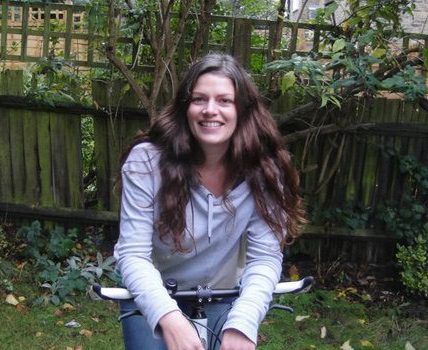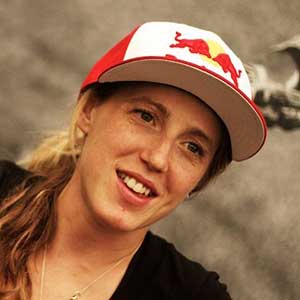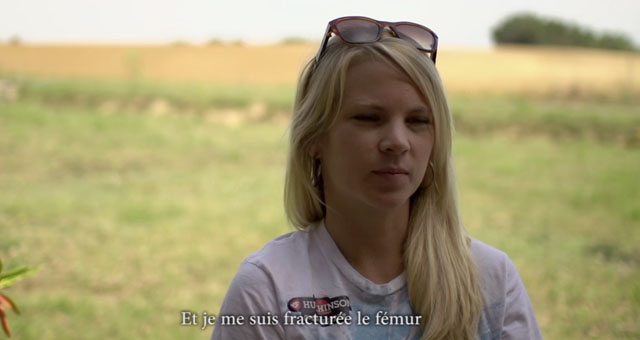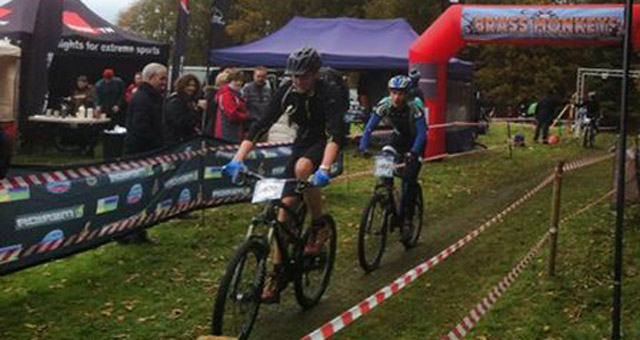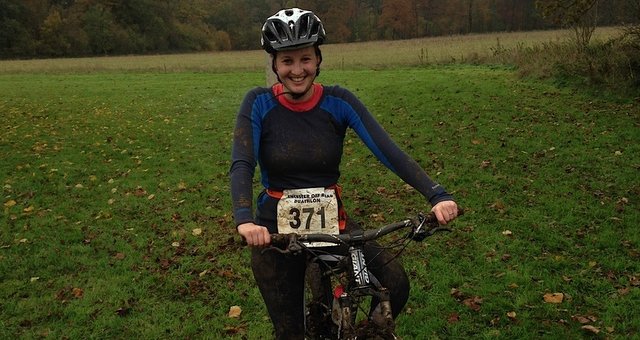We often bemoan the lack of competitive cycling events for women, then shy away from entering when they crop up ‘in case I’m rubbish and come last’. If we’re serious about hauling women’s cycling out of the doldrums and into the same territory as men’s – we need to get over our fear of finishing last.

Cathy Bussey invites the pros; from World Champion Downhill mountain biker – Rachel Atherton, to Hannah Barnes of Team MG-MaxiFuel who defeated Olympic Champion Laura Trott at the IG London Nocturne, to share how they overcame the fear of competitive cycling and how you can too.
Fight the fear…
Last month saw the AnaNichoola VeloJam hit Herne Hill Velodrome in South London for the second year running. This event is one of the very few that allows women to compete against others of the same ability.
We’ve all heard time and again that one of the main reasons women don’t make the step up to cycling competitively is the lack of categories. If you want to start racing in the UK, you’d better be prepared to go up against the best of the best. Theoretically you could, in your first ever event, be racing against Laura Trott.
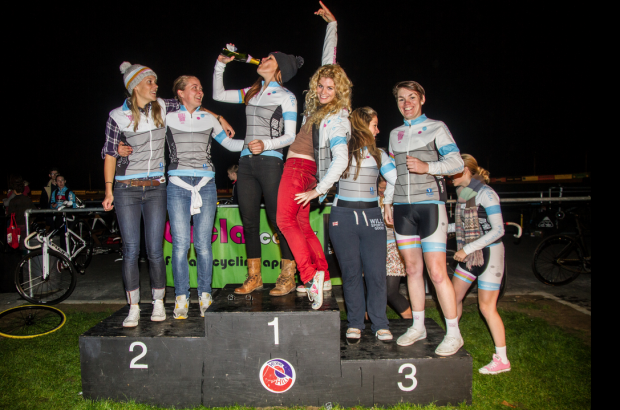
VeloJam certainly attracted an impressive turnout, but how many of us sat at home, reading about the event online and thinking ‘I would have loved to race, but what if I came last?!’
In fact this very fear of finishing last can push us to achieve more than we thought possible. ‘When I was younger and racing BMX, I used to be horrified at the thought of not winning, or finishing last,’ confesses downhill world champion Rachel Atherton.
It was the biggest motivation for me to stand up and pedal. If I crashed in the race, I would sit and cry as the other girls raced past me.
Like many great champions Rachel has been able to channel this fear into motivation. ‘It’s a huge advantage to me, that sheer determination, that raw fear that I do not want to be last,’ she says.
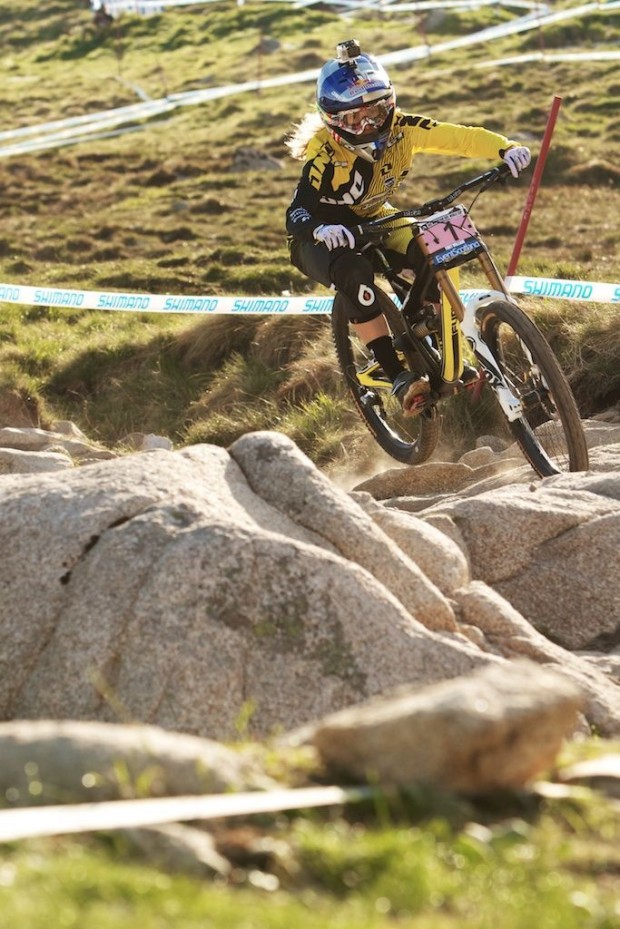
Anna Glowinski, Mule Bar Girl rider and founder of AnaNichoola, agrees there are motivational aspects of potentially limping home at the back of the pack but for her it’s about fitness, not winning. ‘This season, after a summer off the bike (Anna broke her wrist filming for The Cycle Show) I knew I needed to get fit again, so the obvious answer was to sign up for some races and at each race, try and improve from somewhere near the back.
There’s nothing like pushing yourself when you’re in a race situation, and there’s no better way to get fit.
Anna encompasses the attitude we all wish we had. ‘I just love the fun of a race and I couldn’t care less if I came last!’ she says.
Conquering the fear of finishing last relies upon working with your mindset rather than fighting against it.
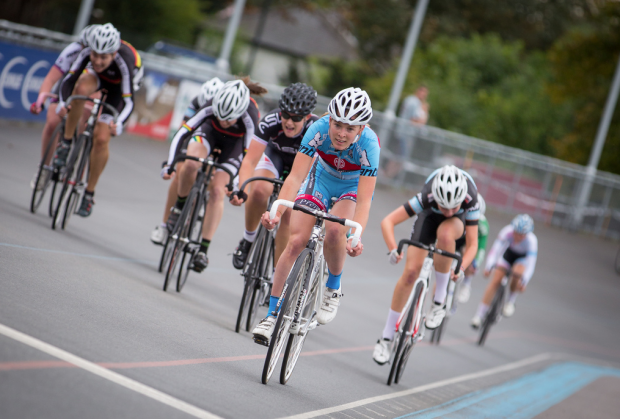
If you’re uber-competitive, channelling the fear into pushing yourself to go faster might be the trick. Or if you’re hoping to see a steady improvement in your times, try viewing races as a learning experience. ‘If you’re a beginner you’re never going to go straight into winning,’ warns MG-Maxifuel’s Hannah Barnes, who has completely dominated the domestic road and track scene this year.
If you’re coming last or near the back, then you have room for improvement! Cycling isn’t just about riding fast. You have to learn a lot of things as well – how to sit on a wheel, cornering, not doing too much at the front.
For many of us however it all comes down to a basic desire not to look silly in public. We worry endlessly about what others will think, not stopping to consider the possibility that perhaps nobody else is quite so fascinated by our lives as we lead ourselves to believe. ‘No-one cares if you come last, everyone is too concerned about their own race,’ Anna says.
European CycloCross champion Helen Wyman agrees, saying CycloCross is often the perfect starting point for competitive cycling as it’s almost impossible to tell who actually is last. ‘After the first lap nobody has a clue where you are in the race – you could be second, you could be 22nd, nobody knows until they get the results.’

Helen takes the classic approach to motivation, focusing on the potential benefits of racing and understanding there are virtually no pitfalls to just giving it a go:
At the end of the day what are the actual consequences of being last? Absolutely nothing. What are the consequences of achieving your own target or actually winning the race? Prize money, prestige and satisfaction. To me it’s far better to have tried and failed, than to never have tried at all.
And if you’re reading all of this thinking ‘that’s all very well, but I’m not a pro and I have a job and a life to take into account,’ then take some advice from the force of nature that is Sarah Strong.
Sarah, 38, is a ‘committed amateur’ who began racing four years ago and is now a regular on the domestic scene. This year she joined Elite Cycling and describes herself as an ‘ageing domestique’. ‘I’m worried about finishing last,’ she admits.
I can scrape a little comfort from a poor race performance if I come second last. It’s great to have goals and to push yourself, and making the leap from rider to racer is pretty damn impressive in itself, but it’s important to be fair to yourself and be realistic.
Sarah added: ‘There are training and skills sessions specifically for women at some circuits. Take advantage of them. You can always decide to do your first race there so you have knowledge of the course – knowledge is power!’
So there you have it! Even the pros have felt the fear – it’s how you move past it that’s important. Now go forth and sign up to that race you were teetering on the fence about…

